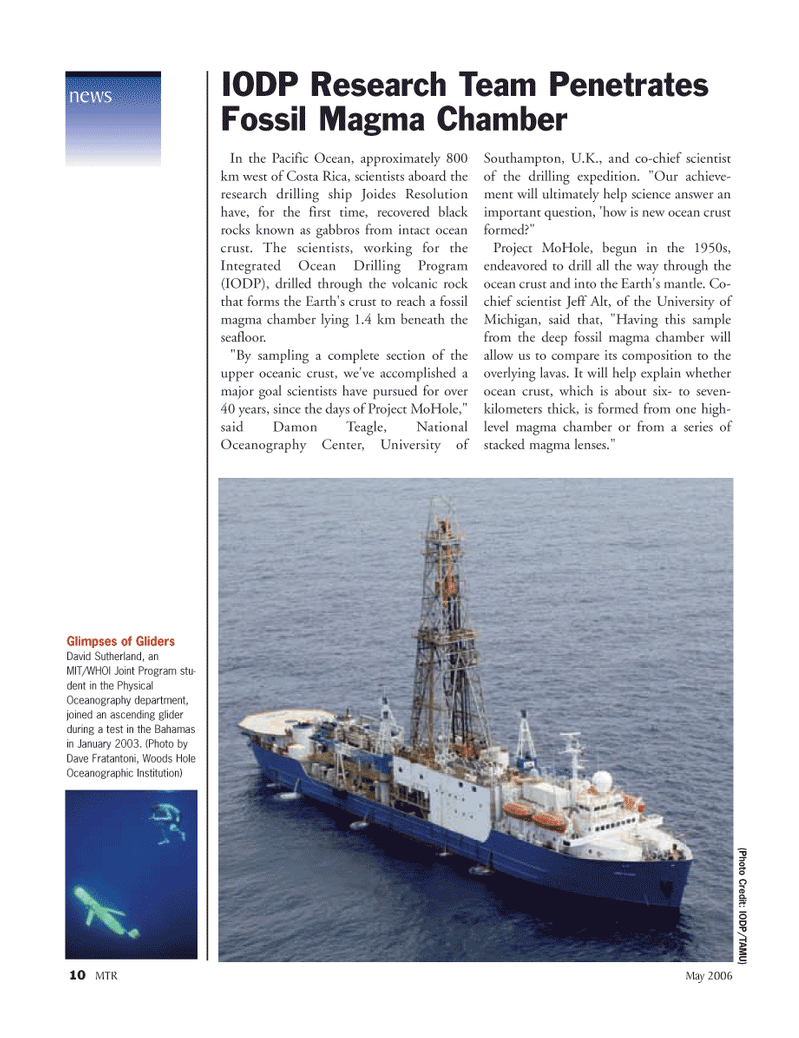
Page 10: of Marine Technology Magazine (May 2006)
The Communications Edition
Read this page in Pdf, Flash or Html5 edition of May 2006 Marine Technology Magazine
10 MTR May 2006
In the Pacific Ocean, approximately 800 km west of Costa Rica, scientists aboard the research drilling ship Joides Resolution have, for the first time, recovered black rocks known as gabbros from intact ocean crust. The scientists, working for the
Integrated Ocean Drilling Program (IODP), drilled through the volcanic rock that forms the Earth's crust to reach a fossil magma chamber lying 1.4 km beneath the seafloor. "By sampling a complete section of the upper oceanic crust, we've accomplished a major goal scientists have pursued for over 40 years, since the days of Project MoHole," said Damon Teagle, National
Oceanography Center, University of
Southampton, U.K., and co-chief scientist of the drilling expedition. "Our achieve- ment will ultimately help science answer an important question, 'how is new ocean crust formed?"
Project MoHole, begun in the 1950s, endeavored to drill all the way through the ocean crust and into the Earth's mantle. Co- chief scientist Jeff Alt, of the University of
Michigan, said that, "Having this sample from the deep fossil magma chamber will allow us to compare its composition to the overlying lavas. It will help explain whether ocean crust, which is about six- to seven- kilometers thick, is formed from one high- level magma chamber or from a series of stacked magma lenses." news
IODP Research Team Penetrates
Fossil Magma Chamber (Photo Cr edit: IODP/T
AMU)
Glimpses of Gliders
David Sutherland, an
MIT/WHOI Joint Program stu- dent in the Physical
Oceanography department, joined an ascending glider during a test in the Bahamas in January 2003. (Photo by
Dave Fratantoni, Woods Hole
Oceanographic Institution)
MTR#4 (1-16).qxd 5/8/2006 9:38 AM Page 12

 9
9

 11
11
